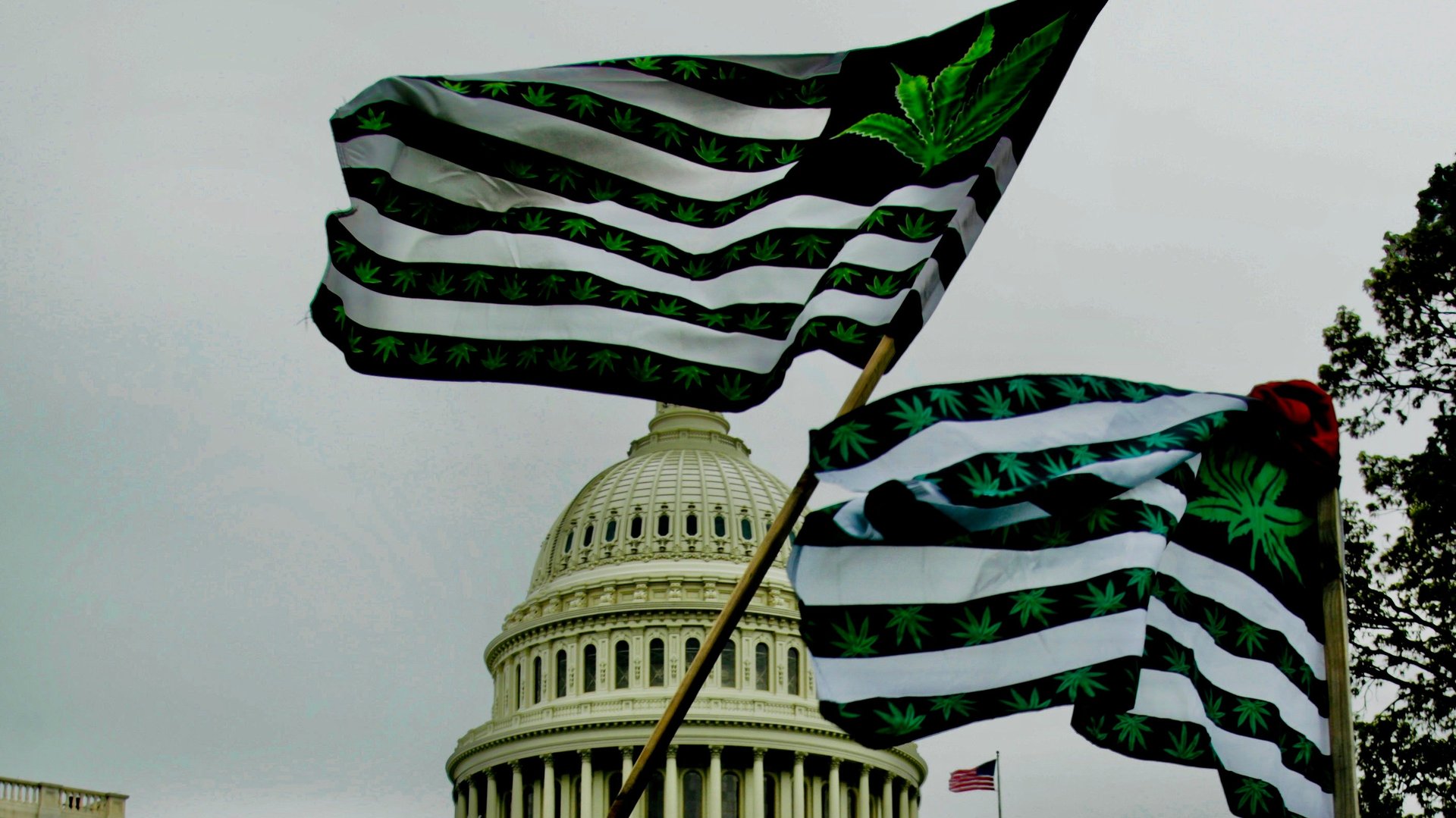Washington, DC’s absurd weed scene shows why the MORE Act just passed a vote
This week, the House Judiciary Committee voted to pass the Marijuana Opportunity Reinvestment and Expungement Act, or the MORE Act, to decriminalize weed at the federal level.


This week, the House Judiciary Committee voted to pass the Marijuana Opportunity Reinvestment and Expungement Act, or the MORE Act, to decriminalize weed at the federal level.
As lawmakers in the Capitol debated this move, all around them in the District of Columbia, the herb in question was circulating widely, being “gifted” and enjoyed freely, if not for free, and perfectly legal.
This contradiction between local and federal law is precisely why the MORE Act was drafted. Right now, federally, marijuana is a highly restricted Schedule 1 substance, making research on the drug hard to conduct even as its use spreads widely and law enforcement efforts become ever more difficult to justify. If the bill does becomes law—and that’s a big if—cannabis would be reclassified as unrestricted and people who’ve been charged or convicted of certain marijuana-related crimes as of the act’s passage would not face criminal penalties and could have their records expunged.
It would also allow the federal government to catch up with much of the country and raise a bunch of money. Medical marijuana is legal in 33 states and it’s legal for recreational use in 11 states, along with DC. As states increasingly decriminalize and legalize marijuana, the federal classification seems not only anachronistic—and like a missed taxation opportunity for a strapped government already taking cash from state cannabis businesses—but downright absurd.
The split between authorities has given rise to a ridiculous patchwork of conflicting laws around the country and spawned kooky legal weed schemes like the one in DC, which must accommodate certain unique federal restrictions because of the district’s status as the capital.
It is legal to smoke, grow, and carry limited quantities of marijuana in DC. But the federal government has been “a constant thorn in the side of the city.” Every year, an amendment is added to mandatory legislation that prevents DC from spending funds to tax and regulate pot. So it is not technically legal to sell weed locally, leading to an interesting workaround for cannabis transactions.
Instead of selling, local purveyors offer marijuana as a gift in addition to a lighter, say, or a sweatshirt, or cookies, or even legal services. There are guides on navigating these transactions, written for discerning local “gentleman tokers” and for tourists unsure of how to partake.
One district criminal defense attorney, who goes by the moniker “Lonny the Street Lawyer,” markets his legal practice with marijuana gifts, for example. He sells cards for redeemable legal services. They come with a gift—weed. The “marketing” attracts customers who probably won’t use the services being guaranteed by the cards but definitely do want to consume the cannabis gifted with them.
Still, anyone in possession of cannabis on federal land in the district is subject to prosecution even if DC metropolitan police are indifferent to weed and couldn’t charge this as a crime.
Some in the federal government want to see these conflicts in the marijuana laws, and the vast array of problems and losses they cause, resolved. ”For far too long, we have treated marijuana as a criminal justice problem instead of a matter of personal choice and public health. Whatever one’s views on the use of marijuana for recreational or medicinal purposes, arresting, prosecuting and incarcerating users at the federal level is unwise and unjust,” House Judiciary Committee chairman Jerry Nadler said in his opening statement on the MORE Act on Nov. 20.
Now that it’s passed a committee vote, the bill will go to the full House for further consideration. If approved again, it would move on to a Senate vote. In the interim, as the wheels of government slowly roll forward—and possibly reach a grinding halt in the Republican-held Senate—the marijuana business will keep booming and the people will keep consuming.